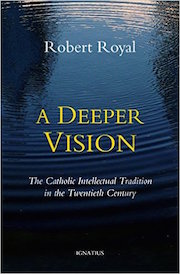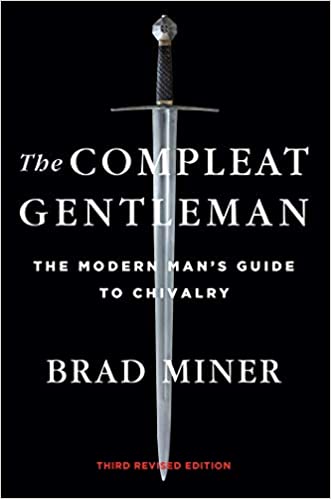Like many Christians, I planned some quite reasonable Lenten disciplines for this year. Mostly, they consisted in ways that I thought I could improve myself, and my treatment of other people. Worthy enough goals, in a way, and I may return to pursuing them. But as an ancient poet once put it in a different context, the gods saw otherwise. And a good thing, too.
I was in Rome last week attending to the business of The Catholic Thing and speaking to a group assembled at the Italian Parliament on threats to religious liberty in America (here’s the Italian text if you want to wrestle with it). All very worthwhile, profitable, and enjoyable. But when I returned home, I went down with some odd flu-like malady that knocked me horizontal – and somewhat loopy – for days, and took me on an entirely different kind of trip.
When you’re really sick, lots of things recede in importance – even burning questions like religious liberty, for which you must be willing to risk life and fortune. It’s impossible to do casual or professional reading, or even to think very clearly. But I remembered a friend’s practice and took up Pascal’s brief Prayer to Ask of God the Proper Use of Sickness, which is the only kind of reflection at such moments that speaks to your situation.
The age-old Catholic advice, “Offer it up,” is exactly right and just the sort of blunt simplicity you need to cling to. But offer what, and how, why, and to whom? Worst of all, it seems empty counsel because of your inability to do it when you’re in the throes. But it’s something the old spiritual masters use to think about. Deeply.
In the modern perspective, illness is something to treat and get past. It serves no purpose and has no human meaning. Mostly, I’d say, it’s regarded as some kind of embarrassing intrusion into a comfortable life, which should be forgotten as quickly as possible. Thinking about it and what our physical weakness ultimately leads to – death and oblivion – is morbid, maybe even plain weird.
It was not always so. Even the ancient pagan philosophers used to think about death. A lot. In fact, if you look at Plato, the Stoics, even the Epicureans (classical version), they all think reflecting on mortality and the inevitability of suffering is the best way to order our thoughts and emotions. In the Phaedo, Socrates says that philosophy is a preparation for death. Strangely – to us – the old pagans believed thinking deeply about suffering and death was the path to peace of soul.
There’s real wisdom in such a view, even if a Christian will think it incomplete. Christians often tend to jump over this stage too quickly and, therefore, don’t get the benefit of this harsh, but effective therapy. Once you realize that, even from a purely philosophical standpoint, it’s all going to vanish, it helps set the soul and it’s preoccupations in a different order.

Blaise Pascal by Philippe de Champaigne, c. 1650
That realism shouldn’t make us any less interested in the moral and spiritual struggles of this world. Indeed, it ought to make what’s ultimately at stake clearer, if – also ultimately – less disturbing. Some people will, of course, take the old Carpe diem route and become heedless sensualists, but that just means they didn’t really take the medicine.
Pascal took it. Straight. There’s a stern Jansenist Puritanism in him, to the point that you almost start to think that he believes God made a mistake in creating this lovely world. And that anything that reminds us of the day when we will leave this world is all to the good: “It is just, Lord, that thou shouldst have interrupted a joy so criminal as that in which I was reposing in the shadow of death.”
What he means, though, is that, given the way we are, even legitimate goods and pleasures typically wind up making us only more self-centered and more self-satisfied in a deep disorder. In that perspective, all our usual human aspirations take on a paradoxical cast:
Lord, I know only that I know but one thing, that it is good to follow thee and that it is evil to offend thee. After this I know not which is the better or the worse of any thing; I know not which is more profitable to me, health or sickness, wealth or poverty, nor all of the things of the world. This is a discernment that exceeds the power of men or of angels, and that is hidden in the secrets of they providence, which I adore, and which I wish not to fathom.
So Pascal prays, not for one thing or another according to human preference, but that “in a constantly equal uniformity of spirit I may receive all kinds of events.”
In lesser hands, this might be mere rote Christian pietism. But Pascal is a real genius who clearly came to such basic truths by hard personal experience. No other world-class mathematician and scientist has also had such a subtle understanding of the human soul, what he called the esprit de finesse (spirit of finesse) as opposed to the esprit de geometrie (spirit of geometry).
I’m still trying to come fully to terms with being forced by unforeseen events from the easier path of plain Lenten plans to this wild terrain of limitless reflections. Like everyone else, I’ve partly absorbed the attitude that God Himself wants everyone to strive to live the Good Life in democratic freedom.
Doesn’t He?















